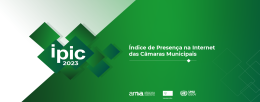On 14 December 2021, the opening session of the 2021-2022 Asia-Pacific Mayors Academy was held to inaugurate the annual capacity development programme for local leaders. The online event brought together mayors from eight countries in the Asia-Pacific region aiming to develop and implement sustainable urban solutions in their communities. The Mayors Academy is a joint initiative of the UN Economic and Social Commission for Asia and the Pacific (UNESCAP), UN-Habitat, UNU-IAS, United Cities and Local Government Asia Pacific (UCLG ASPAC), the Association of Pacific Rim Universities (APRU), and Institute for Global Environmental Strategies (IGES).
In the opening remarks, Armida Salsiah Alisjahbana (Executive Secretary, UNESCAP) encouraged the mayors to engage local and national actors to leverage participation and align their strategies with local contexts to enable sustainable transformation in their cities. Maimunah Mohd Sharif (Executive Director, UN-Habitat) asked the participants to think locally to understand community issues, act globally by joining international platforms and sharing experiences, and apply their knowledge to implement sustainable action plans in their cities. Bernadia Tjandradewi (Secretary-General, UCLG ASPAC) applauded the mayors’ commitment to ensure sustainable development and recovery, and invited them to make the most of the learning and networking opportunities at the Academy. Shinobu Yume Yamaguchi (Director, UNU-IAS) emphasised the need for a healthy urban ecosystem to enhance people’s livelihoods, counteract climate emergencies, and stop the collapse of biodiversity. Christina Schönleber (Senior Director of Policy and Programmes, APRU) highlighted the Academy as a platform for the mayors to gain knowledge and develop networks, aiding them in sustainable and responsible development of their communities and building back equitable, green, and just cities. Rounding up the welcoming remarks, Junichi Fujino (Programme Director, Integrated Sustainability Centre, IGES) expressed his hope that the participants would work together to create a meaningful discussion and share their ideas globally.
The mayors provided brief introductions to their cities, followed by a roundtable discussion with former participants moderated by Kaveh Zahedi (Deputy Executive Secretary, UNESCAP). 2020 fellows, Mayor Bernard Dy of Cauayan City, the Philippines, and Former Mayor Seyed Mostafa Mousavi of District 9 Tehran, Iran, shared their learning experiences and explained how they applied to local sustainability initiatives. Mayor Dy recounted his city’s participation in the Voluntary Local Review (VLR).
Curt Garrigan (Chief, Sustainable Urban Development Section, UNESCAP) provided an overview of the Academy, focusing on its structure and pedagogy. Samiuddin Ahmed (UNESCAP) elaborated on the incorporation of VLR into the Academy’s modules. Atsushi Koresawa (Director, UN-Habitat Regional Office for Asia and the Pacific) outlined the global development frameworks and stressed the importance of localisation and local leadership. Mahesti Okitasari (UNU-IAS) introduced the Future of Asian and Pacific Cities and its policy pathways.
The mayors participated in breakout sessions to discuss a scenario in which the national government planned to update its National Determined Contributions under the Paris Agreement. Cities were mandated to identify and accelerate climate actions to help deliver against the target. The mayors shared their top three executive actions, elaborating on who they would engage and how they would finance and monitor their initiatives. The event concluded with an overview of the second session on COVID-19 recovery to be held on 11 January 2022.
More information about the Asia-Pacific Mayors Academy is available here.


